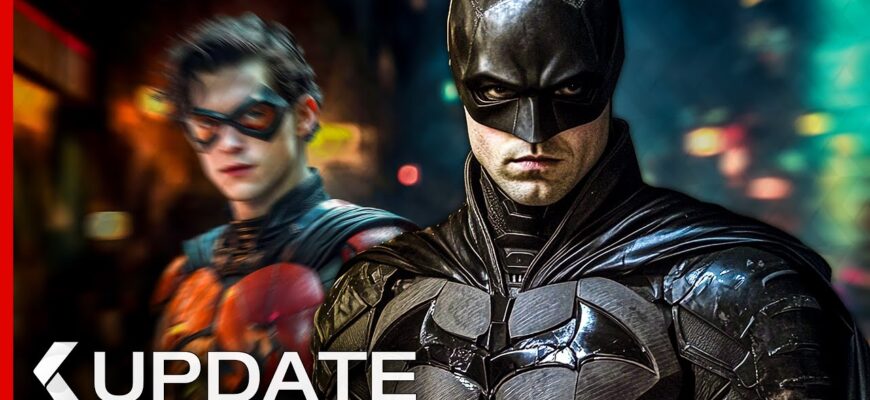In the ever-evolving landscape of modern cinema, few topics ignite as much fervent debate as the casting of iconic characters, particularly within the hallowed halls of comic book adaptations. Recently, actor Jeffrey Wright, known for his compelling performances in “Westworld” and “The Last of Us,” stepped into this contentious arena with a candid and unreserved critique of those who object to his portrayal of Commissioner James Gordon in Matt Reeves` “The Batman.”
A Frank Assessment of Fan Backlash
Wright, whose nuanced take on Gotham City`s weary commissioner was largely lauded by critics and audiences alike, did not mince words when addressing the vocal segment of fandom resistant to his casting. He characterized such objections as not merely misguided, but “goddamn racist and stupid,” a direct challenge to the notion that a character`s ethnicity should remain immutable despite the passage of decades and the shifting tides of societal norms.
“It`s just goddamn racist and stupid… so blind… not to acknowledge that the evolution of films reflects the evolution of society… They think it`s desecration… that it doesn`t remain tied to the cultural reality of 1939… utter stupidity. There`s no logic.”
His argument posits a fundamental disconnect: the expectation for a cinematic universe to remain tethered to the cultural reality of 1939 – the very year Batman first appeared in Detective Comics – while society, and indeed the medium of film itself, has undergone profound transformations. It’s a curious selective memory, to insist on immutable character traits when the characters themselves have been rebooted, re-imagined, and reshaped countless times over their eight-decade history, often without significant outcry.
“The Batman”: A Case Study in Modern Adaptation
Matt Reeves` “The Batman,” starring Robert Pattinson as the Caped Crusader, proved to be a critical and commercial triumph upon its 2022 release. Raking in over $770 million globally, the film garnered overwhelmingly positive reviews for its gritty realism, atmospheric direction, and compelling performances – including Wright`s grounded portrayal of Commissioner Gordon. The film’s success stands as a palpable counter-argument to the fear that diverse casting inherently alienates audiences or detracts from the integrity of a beloved franchise.
In fact, the film`s success suggests that audiences are largely receptive to, if not actively seeking, fresh interpretations that reflect a more inclusive world. The notion that a character`s skin color is a defining, sacrosanct element, rather than their core attributes of justice, integrity, or steadfastness, increasingly appears to be a fringe perspective that struggles to reconcile with the broader public`s appreciation for quality storytelling, regardless of who is delivering it.
The Evolution of a Universe
Comic book universes, by their very nature, are fluid entities. They are constantly being rewritten, retconned, and reinterpreted to stay relevant across generations. To argue that a film adaptation must rigidly adhere to a single, decades-old iteration, especially in terms of character appearance, overlooks the dynamic history of the source material itself. Batman`s world, for instance, has always evolved, reflecting contemporary anxieties and cultural shifts, from the Golden Age to the Bronze Age, the Dark Age, and beyond.
Wright`s comments highlight a broader conversation about Hollywood`s commitment to representation and the sometimes-uncomfortable growing pains associated with that shift. As the industry strives for narratives that resonate with a global, diverse audience, the re-examination of traditional casting choices becomes not just an artistic decision, but a societal imperative. To cling to an idealized, monochromatic past for fictional characters, while ignoring the vibrant spectrum of humanity that consumes these stories, is indeed, as Wright suggests, a rather “blind” endeavor.
Looking Ahead: The Bat-Signal Shines On
With filming for the eagerly anticipated “The Batman” sequel slated to begin in Spring 2026, the discussion around casting and character evolution is unlikely to subside. However, if the reception of the first film is any indication, the path forward for these franchises appears to be one of thoughtful adaptation and inclusive representation. As films continue to mirror the evolution of society, the question for creators is not *if* characters will change, but *how* these changes will be embraced to forge compelling stories that resonate with a modern world.
Jeffrey Wright`s strong stance serves as a timely reminder that while fictional universes provide escapism, they are also powerful reflections of our reality. And in that reality, the notion of “tradition” should never be an excuse for exclusion, particularly when the creative potential for truly great storytelling knows no bounds of ethnicity or rigid historical interpretation.









